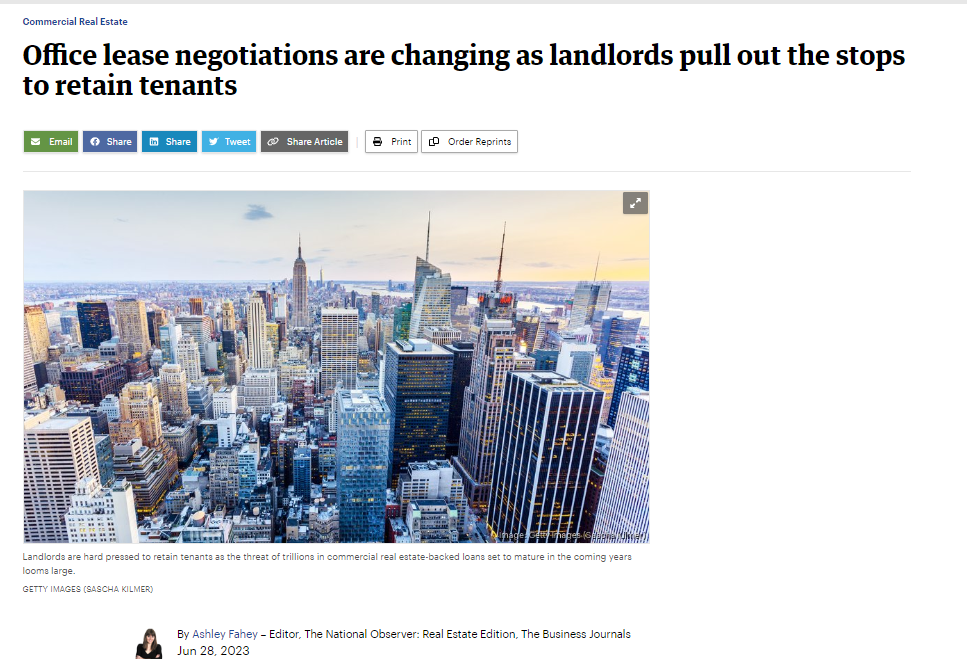Michael Thom Discusses Office Lease Negotiations in The Business Journals
Obermayer business and finance attorney Michael Thom was interviewed by The Business Journals in connection with the new dynamics in negotiations over lease terms in the office market. In the article, titled “Office lease negotiations are changing as landlords pull out the stops to retain tenants,” published on June 28, 2023, Mike said it’s not uncommon to see lower rent or abatements at renewal time, as office tenants consider other office buildings or exiting leases entirely. Ultimately, landlords are willing to negotiate to keep tenants because it’s more expensive to have that office vacant, and the cost to getting a new company into that space remains high, not to mention more uncertain with a weaker leasing market.
“If you have open space, you could have an issue if you can’t fill it quick enough,” Thom said. “(That’s) less revenue for you (and) you’re going to be coming out of pocket to do maintenance, landscaping and other things that you don’t want to be in a position to pay out.”
That desire to keep tenants has created somewhat unique lease situations, Thom added. He recently worked on a deal where a tenant needed 5,000 square feet but the landlord, which had 10,000 square feet available, agreed to lease the entire space for the company, but rent wouldn’t be paid on the extra 5,000 square feet until it was needed. That meant that entire 10,000-square-foot space was leased, even if not fully occupied, and the tenant was incentivized to lock in the current rate and have space to grow, if needed, without having to pay for it right away.
Mike also shared that the next six months will prove interesting, as a lot of short-term renewals and extensions signed at the height of the Covid-19 pandemic — when companies largely weren’t in a position to move forward on a big lease decision — are set to expire.
“I think landlords are going to do whatever they can to work with their tenants,” he continued. “If there is a loan covering the property (expiring soon), and you do have changes in tenants, now you have a landlord with not only a tenant problem but also a loan problem.”





